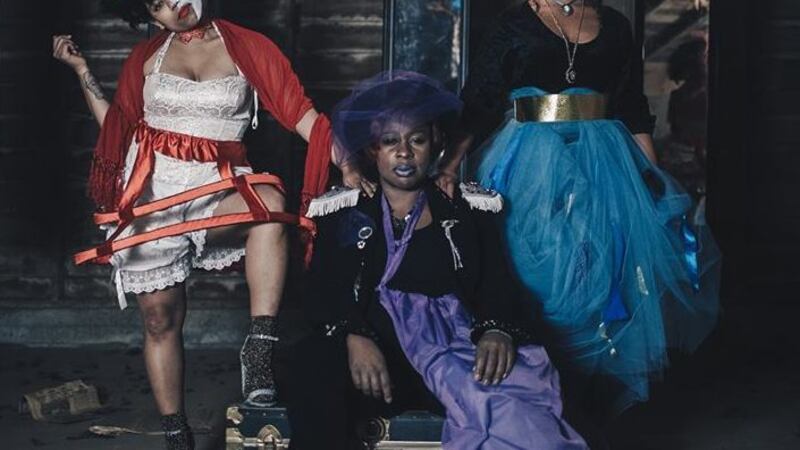When Portland Actors Conservatory grads Tyharra Cozier and Monica Fleetwood started making the rounds during casting season, something didn't feel right. They were roommates at the time, and Cozier recalls sitting in their kitchen and venting about a disappointing audition.
"For a young, black woman, you had two choices," says Cozier. "Play a role you weren't 100 percent comfortable with, like a maid or slave, or audition for a role that better suits you, but the guy who got cast as your partner is 20 years your senior, so the role goes to a woman who's been around longer than you."
Fleetwood brought up The Clark Doll, a play written by Liz Morgan about the internalized experience of black womanhood, and one that could be done very well on a shoestring budget. From there, Syde-Ide Collaborations was born.
Seven months after that conversation in the kitchen, their production of The Clark Doll is now playing at Performance Works NW. Directed by Victor Mack, Shareen Jacobs joins Cozier and Fleetwood as three women who are stuck in a room, each representing different shades of psyches society has imposed upon black women. They flip through a book of fairy tales and act out parables of femininity and blackness for each other, struggling to learn a way out when they don't see themselves in any of the stories. The sparse set holds only the props necessary for the play, like a jump rope that Cozier spins faster and faster as she struggles to sing a nightmarish lullaby in time.
"My priority was that we could work with a four-person cast and a minimalist set, and focus on the work itself," says Cozier.
By keeping the overhead low and tapping former classmates from the Portland Actors Conservatory for crew, the pair were able to create the platform they wish they'd had when entering the theater scene. "We want to give people a chance to do things they haven't been able to do before," says Cozier.
Syde-Ide is equal parts collaboration hub for minorities to get their art produced and a springboard for new talent to develop the skills in acting, directing, engineering and design that they weren't getting the opportunity to cultivate elsewhere. "Someone has to take a chance on you," says Fleetwood. "Syde-Ide is not just a 'black theater company.' It's important to us to explore and to accurately convey the nuances and details of different experiences with integrity."
Fleetwood says that despite the moderate selection of local productions featuring actors of color, there's still a disconnect between the storytelling and the actual experiences of black audience members. "It seems like anytime there was a play with minorities in it, it was described with words like 'gripping,'" she says "Why is it shocking and edgy to see three African-Americans on stage? And you can't move around Shakespeare, cast black women and pat yourself on the back for fixing things."
"It's the difference between A Raisin in the Sun and Clybourne Park," adds Cozier. "In A Raisin in the Sun, you don't have to talk about racism because you see it in the way these people live, talk and carry themselves. Whereas Clybourne Park is just four people in a room talking about racism in a circle, not really achieving anything. That's something written for a white audience to understand racism, not for a black audience to feel heard and seen."
With recent trends pushing every company to avoid accusations of discrimination, Cozier and Fleetwood are well aware of the recent marketability as female artists of color. But they know that doesn't equal progress. "We don't want to let things slip back in a couple years when the trend fades," says Cozier. "You want to be a part of the change, but you also want to make sure that the change is real."
SEE IT: The Clark Doll is at Performance Works NW, 4625 SE 67th Ave., sydeidepdx.com. 8 pm and Monday-Wednesday and Friday-Saturday, through Feb. 21. Additional 10 pm shows Saturday, Feb, 17. $20.
